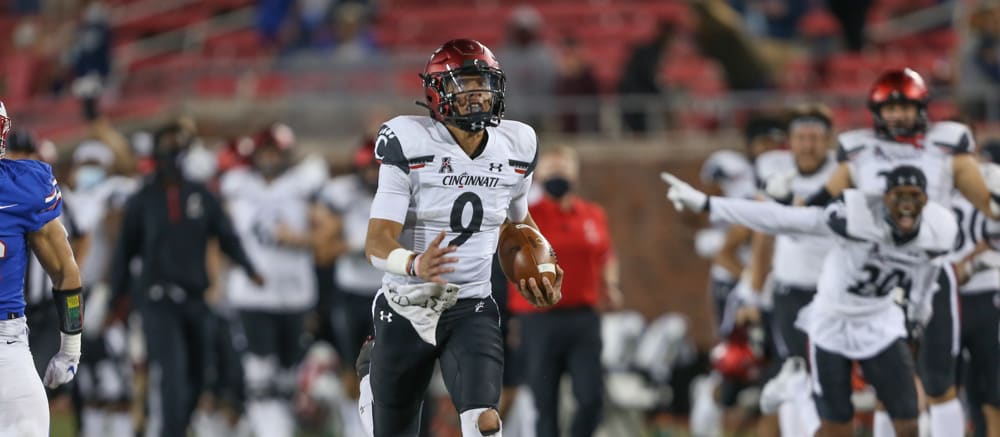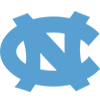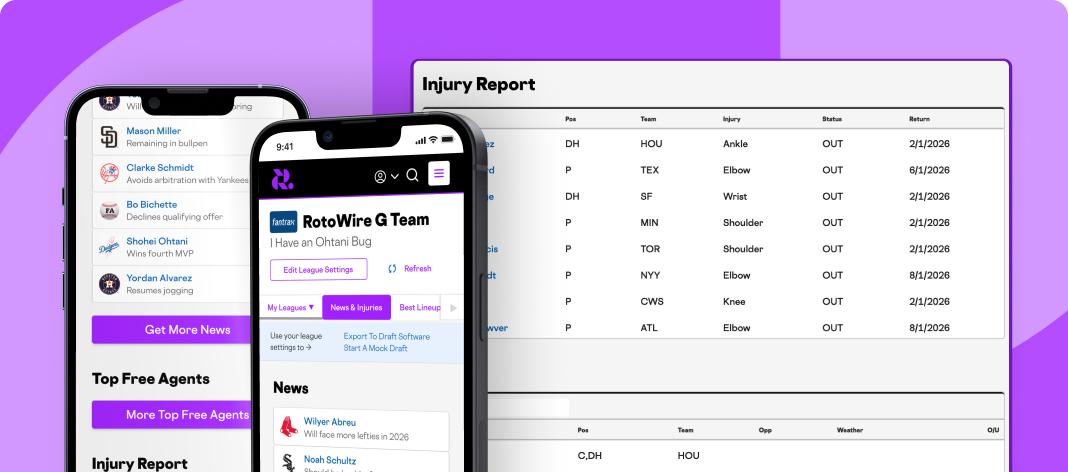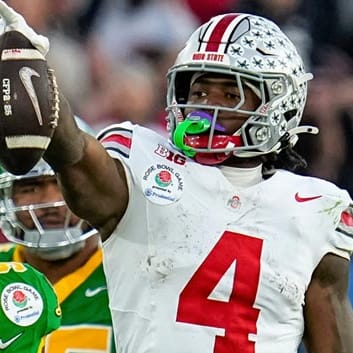If you're like me, you enjoyed Week Zero probably too much. But if you're a normal person, tomorrow is the first Saturday of the college football season that you will be tuned into the action from morning til midnight.
To that end, we kick things off with an awesome 13-game main slate on DraftKings with almost all of the fun matchups and players we would hope to have available to us for that window. We have games ranging from expected blowouts like Oklahoma-Tulane and Michigan-Western Michigan to more competitive tilts like Penn State-Wisconsin, Iowa-Indiana and West Virginia-Maryland.
We'll dig into the DFS angles for this slate. Below, you'll find our suite of DFS tools to help you build your best lineups, along with our matchup info and my position-by-position breakdown.
DFS Tools
- DraftKings Lineup Optimizer
- NEW Matchups Page (Vegas odds, opponent averages, etc.)
- Advanced Lineups Page
- Stats
- Team Trends
- Targets
- Defense vs. Position
- Team Rankings
- Podcast
Matchup Info
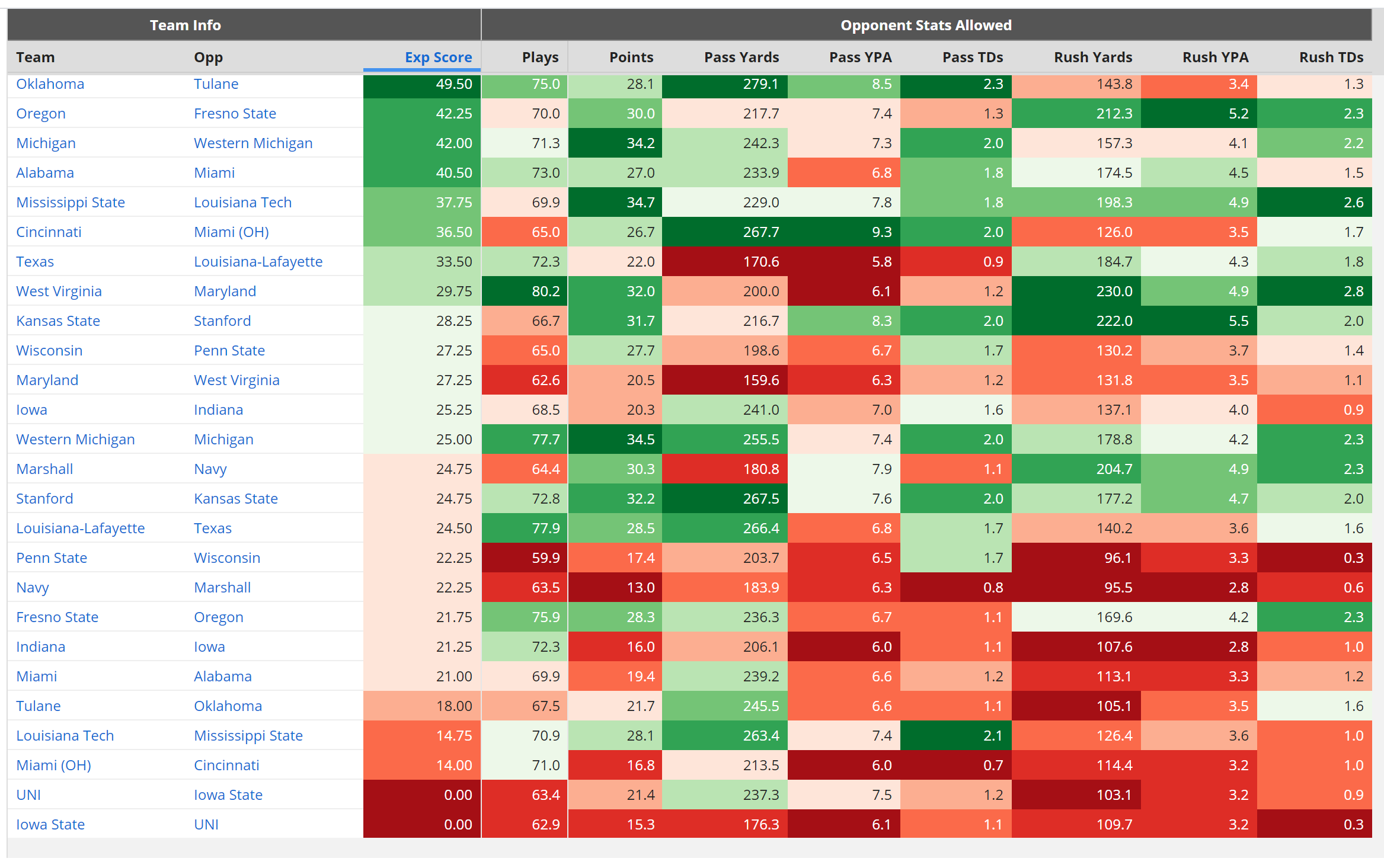
Slate Overview
As always, we're aiming to load up on teams with high implied totals in games with narrower spreads that will mitigate the risk of our star players being rested in the second half. Oklahoma checks in with the highest implied total on the board (49.5) but in a game where the Sooners are 31.5-point favorites, going all-in with the Sooners starters appears dicey.
Oregon is next up with a 42.25 IT in what projects to be a more competitive matchup against Fresno State (+20.5). Unlike Oklahoma, though, Oregon is lacking obvious star power on offense. Anthony Brown ($8,300) is the new quarterback in town and running backs CJ Verdell ($6,000) and Travis Dye ($5,000) no longer have to contend with goal-line vulture Cyrus Habibi-Likio. In the pass game, Devon Williams ($4,600) led the team in every major receiving category last season despite being third in targets. He's the Duck receiver to target in this one.
Michigan (42.0), Alabama (40.5) and Mississippi State (37.75) round out the top five teams in terms of implied totals.
Looking at last year's data (with a grain of salt, of course) there are a few units to target and avoid as well. Maryland, Stanford, Fresno State, Navy and Louisiana Tech all gave up 198 or more rushing yards per game last season. With Louisana Tech's opponent being Missisisppi State, however, I'm not sure how much we can take advantage of that leak in the boat.
Looking at soft pass defenses, Tulane, Miami (OH), Kansas State, Texas and Mississippi State had the worst units from last season in terms of yards allowed per game (imperfect stat but not completely irrelevant). On the other end of the spectrum, West Virginia, Louisiana, Penn State, Maryland and Iowa were the toughest through the air. This is something to keep in mind if using Texas or Maryland passing game stacks in your lineups.
Quarterback
Desmond Ridder ($9,200) Cincinnati 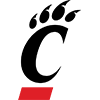 vs. Miami (OH)
vs. Miami (OH)
Seeing Ridder ahead of Bryce Young in terms of DK salary may drive roster percentage towards the Crimson Tide quarterback, but don't be so quick to move past the Cincy signal caller. Ridder ranked ninth in the nation among all quarterbacks in fantasy points per game last season, is now a senior and gets to face one of the worst defenses on the slate. The worry is that Cincinnati is one of the heaviest favorites on the board, too, but Ridder is such an essential piece of the offense both as a passer and as a runner that the Bearcats won't challenge for their implied total or the cover without him going off. And I expect them to do both, therefore I expect Ridder to be a strong DFS play Saturday.
Hudson Card ($6,900) Texas  vs. Louisiana
vs. Louisiana
Texas' decision to let its quarterback competition play out until late August worked out in our favor as it kept both Card and Casey Thompson's listed salaries down. Card ultimately won the job, and while there's a chance Thompson plays, it's more likely that Texas gives Card the keys to the offense and lets him drive it rather than invite another quarterback controversy in Year 1 for Steve Sarkisian. Enough Texas football politics though.
Card himself is a strong dual-threat quarterback who plays in a pass-friendly offense and is surrounded by talented pass-catchers. The one drawback is that Card will likely be chalky given his price and Texas' high implied total. Still, rostering Card gives managers the flexibility to squeeze another elite option into a roster spot elsewhere.
Skylar Thompson ($6,600) Kansas State  vs. Stanford
vs. Stanford
Kansas State isn't generally an offense to load up on given the Wildcats' penchant for playing a grind-it-out style with a slow pace (61.4 plays per game in 2020). Stanford is middle of the road as far as tempo goes (71.5) so at least this won't be like a service academy game.
With Thompson, there are multiple things working in his favor. For one, he's healthy and the clear starter. Secondly, he's a true dual-threat who can do damage with his legs with 816 career rushing yards and 19 rushing scores in 27 career games. If Stanford is keying in on slowing Deuce Vaughn, Thompson can pull it and hurt the Cardinal with his own mobility. Furthermore, despite the slow pace of this game, Kansas State still carries a respectable implied total of 28.25. One could do much worse than Thompson at $6,600 and his roster percentage projects to be low so if he goes off, you have leverage.
Running Back
Leddie Brown ($8,000) West Virginia  at Maryland
at Maryland
The way to attack Maryland's defense is on the ground, and that is something West Virginia won't mind at all when it has Brown in the backfield. Maryland surrendered at least 234 rushing yards in all-but one game last season, allowing some monstrous individual performances along the way. Brown, meanwhile, had five 100-yard games in 10 tries last season, along with three multi-touchdown outings. If pricey running back is a desired part of your build, consider also that Breece Hall is $1,000 more against your cap in a game where he may not be needed nearly as much against UNI as Brown will be against Maryland. Matchup edge goes to Hall ever so slightly, but Brown has the overall edge in value and workload projection.
Deuce Vaughn ($6,300) Kansas State  vs. Stanford
vs. Stanford
Stanford's defense was uncharacteristically bad last season, allowing 222 rushing yards per game. Even if the 2020 asterisk over last season looms, that's still a concerning mark for the Cardinal heading into a matchup where they must stop Vaughn. The 5-foot-5 Vaughn reeled off 5.2 yards per carry as a freshman and was a nightmare in the pass game with 25 catches for 434 yards and two scores over 10 games.
Others To Consider
Jase McClellan ($5,800) Alabama  vs. Miami (FL): Brian Robinson is the starter but he's not a Najee Harris type that will take up all the backfield work himself. McClellan, a top-50 composite player in the 2020 recruiting cycle, projects to get into the mix in the backfield. He's not the screeching value that I hoped for going into the week, so he'll need more than just a garbage-time touchdown to hit value. This is a bet he will see enough consistent work throughout the game to get there, though.
vs. Miami (FL): Brian Robinson is the starter but he's not a Najee Harris type that will take up all the backfield work himself. McClellan, a top-50 composite player in the 2020 recruiting cycle, projects to get into the mix in the backfield. He's not the screeching value that I hoped for going into the week, so he'll need more than just a garbage-time touchdown to hit value. This is a bet he will see enough consistent work throughout the game to get there, though.
Donovan Edwards ($5,400) Michigan  vs. Western Michigan
vs. Western Michigan
A highly touted freshman should see some work against Western Michigan. Like McClellan, the salary isn't ideal for a backup RB play. Still, Michigan is a 17-point favorite so the reserves should see action and Edwards getting unleashed on a beaten-down WMU defense in the second half could be a sneaky play. Oregon freshman Byron Cardwell ($3,000) fits a similar mold, though he's not a starter. If the Ducks get up by as much as expected, though, Cardwell could get some run.
Rasheen Ali ($3,300) Marshall  vs. Navy
vs. Navy
Perhaps Navy's tackling woes will be a thing of the past after getting a more normal offseason, but it's hard to completely wash away how bad the Midshipmen were against the run in 2020. Navy allowed over 200 rushing yards per game in 2020 and nearly 5.0 YPC. Ali is listed as a co-starter for a run-heavy offense that is replacing Brenden Knox. It's a dart throw, but the matchup and Ali's depth chart placement could make him a bargain-basement deal.
Wide Receiver
Jaden Walley ($6,900) Mississippi State 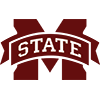 vs. Lousiana Tech
vs. Lousiana Tech
Walley's late-season breakout in which he racked up 41 catches for 608 yards and two scores on 68 targets helped establish him as the Bulldogs' best receiver coming into 2021. Mississippi State, by nature, is going to put the ball in the air upwards of 50 times against an unimpressive Louisiana Tech secondary and Walley will get to eat first. Look for double-digit targets to go Walley's way, bolstering his floor in this PPR format. The catch volume isn't his only calling card, though. Walley can absolutely do damage with his receptions, especially against this defense.
Devon Williams ($4,600) Oregon  vs. Fresno State
vs. Fresno State
As mentioned earlier, Williams is the most talented and efficient receiver on the Oregon roster, registering an 11.9 YPT mark on a 12 percent target share last season. Look for that share to increase in his second season with the program. Don't let last week fool you, Fresno State is not a world-beater on defense. Mycah Pittman ($4,100) is also a viable option if stacking Ducks.
Impact Freshmen
Xavier Worthy ($4,700), Texas; Agiye Hall ($5,400) and Jojo Earle ($4,000), Alabama; Mario Williams, Oklahoma ($3,000)
Worthy has been getting buzz all offseason and it hasn't slowed down since he got to Austin after initially inking with Michigan. He's already set to start thanks to Jake Smith being gone and Troy Omeiere being sidelined. Look for Worthy to be involved in the Longhorn passing game that should be improved under Steve Sarkisian.
Now onto the Tide, where Hall and Earle stand to have role in the electric Alabama passing game that is replacing DeVonta Smith and Jaylen Waddle. John Metchie will take the lead of this group but as the highest-salaried receiver on the board, I'm inclined to drop down to less prohibitive options. Hall and Earle are both on the depth chart and could return value. Another sneaky play from Alabama, if there is such a thing, is Ohio State transfer Jameson Williams ($5,200). At $200 less than Hall while still also having a cemented starting role, Williams is worth consideration as well.
Williams is a wildcard. He was an early enrollee in January and rated as the No.4 receiver in this class. Williams was reportedly impressive all offseason. Now, onto Saturday. Charleston Rambo is gone; Theo Wease is out and Oklahoma is supposed to win by more than four touchdowns. That means the reserves should get some time and Williams isn't even that far down the depth chart as he was listed as a co-starter. And if it isn't Rattler in at quarterback, five-star freshman Caleb Williams will be in at quarterback, which can only help. Going after min-price players is always risky, but there's a path to Mario Williams doing something and making the $3k investment worthwhile.
